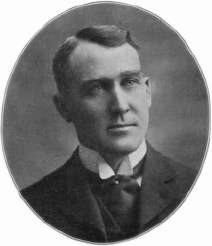Alexander Kenneth Maclean
| The Hon. Alexander Kenneth Maclean | |
|---|---|
 | |
| Member of the Canadian Parliament for Lunenburg | |
|
In office 1904–1911 | |
| Preceded by | Charles Edwin Kaulbach |
| Succeeded by | John Drew Sperry |
| Member of the Canadian Parliament for Halifax | |
|
In office 1911–1923 | |
| Member of the Nova Scotia House of Assembly for Lunenburg | |
|
In office 1901–1904 | |
|
In office 1909–1911 | |
| Personal details | |
| Born |
October 18, 1869 Upper Sydney, Nova Scotia |
| Died | July 31, 1942 (aged 72) |
| Political party | Liberal |
| Cabinet | Minister Without Portfolio (1917-1920) |
Alexander Kenneth Maclean, PC (October 18, 1869 – July 31, 1942) was a Canadian politician and judge.
Early life and education
Born in Upper North Sydney, Cape Breton County, Nova Scotia, Maclean was educated at Pictou Academy and Dalhousie University.
Career
A lawyer, practising in Lunenburg, Nova Scotia, Maclean first ran unsuccessfully for the Canadian House of Commons in the 1900 federal election for the electoral district of Lunenburg. In 1901, he was elected to the Nova Scotia House of Assembly for Lunenburg. A Nova Scotia Liberal, he served until 1904 when he was elected to the House of Commons representing Lunenburg.
He resigned as an MP in 1909, when he was re-elected to the House of Assembly and was appointed Attorney General and Commissioner of Crown Lands in the cabinet of George Henry Murray. He served until 1911, when he was elected again to the House of Commons for the electoral district of Halifax. As a result of the Conscription Crisis of 1917 he crossed the floor on October 10, 1917 to support the Unionist government of Sir Robert Laird Borden and was a minister without portfolio in the Cabinet. He left the government in 1920 and was re-elected as a Liberal in the 1921 general election.
He resigned his seat in 1923 to become President of the Exchequer Court of Canada, holding that position until his death. He also acted as an ad hoc judge at the Supreme Court of Canada, sitting 67 times during his career.[1]
His most significant decision is considered to be the one he wrote in R. v. Eastern Terminal Elevator Co.,[2] which was affirmed by the Supreme Court. Maclean's decision is generally considered to be highly competent, where the issue was well thought out and analyzed, in contrast with Duff J's subsequent opinion at the SCC.[3]
See also
- Alexander Kenneth Maclean – Parliament of Canada biography
- The Canadian Parliament; biographical sketches and photo-engravures of the senators and members of the House of Commons of Canada. Being the tenth Parliament, elected November 3, 1904
References
- ↑ Bushnell 1997, p. 109
- ↑ [1924] ExCR 167
- ↑ Bushnell 1997, p. 106
Further reading
- Ian Bushnell (1997). "11: The Maclean Years, 1923–1942". The Federal Court of Canada: A History, 1875-1992. Toronto: University of Toronto Press. ISBN 0-8020-4207-4. Retrieved 2013-01-06.